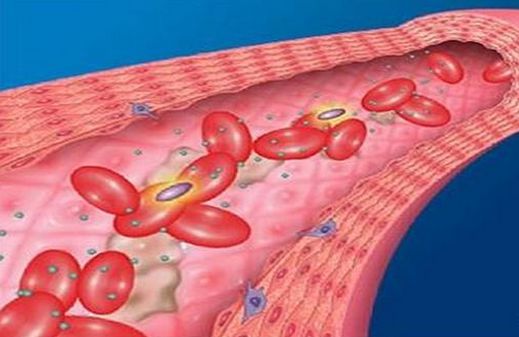
Cognitive Decline in AF Not Reduced by Anticoagulation
CHICAGO — A randomized placebo-controlled trial testing a direct oral anticoagulant for the prevention of cognitive decline in patients with atrial fibrillation (AF) has been halted early for futility.
After a median follow-up of 3.7 years, there was no difference between rivaroxaban 15 mg and placebo for a composite primary endpoint that included cognitive decline, stroke, and transient ischemic attack, said Léna Rivard, MD, an electrophysiologist and associate professor at the Montreal Heart Institute in Montreal, Quebec, Canada.
When the BRAIN-AF trial was halted by the Data Monitoring Committee, 256 primary events had occurred, most of which involved cognitive decline. However, the rate of cognitive decline, defined as a reduction of at least 2 points from baseline on the validated Montreal Cognitive Assessment test, was essentially identical.
“There was no difference between rivaroxaban and placebo, even with a very high rate of cognitive decline detected overall,” Rivard said during a late-breaker at the American Heart Association (AHA) Scientific Sessions 2024. By the end of follow-up, 18% of study participants met the definition of cognitive loss.
Cognitive Decline in 18% of Patients
One limitation of the BRAIN-AF study was that it enrolled patients with a risk for stroke that did not meet the guideline criteria for oral anticoagulation. This was necessary to allow study participants to be randomized to placebo.
With this criterion, an age range of 30-62 years, and exclusions for previous stroke, hypertension, diabetes, and congestive heart failure, the study population was at low risk, but not no risk, for AF events. In addition to the observed rates of cognitive loss that accrued during a median follow-up of less than 4 years, the estimated stroke rate in this low-risk population was 0.5%-1.0% per year. The observed incidence was 2.5%.
The data presented by Rivard were on the basis of 1235 patients randomized at 53 sites. The median age was 53 years, 78% of study participants had a history of paroxysmal AF, 96% were White, and about 25% were women.
There are a number of explanations for the outcome of this study, including the fact that patients were too young and too healthy, said Andrea M. Russo, MD, an electrophysiologist and professor of medicine at the Cooper Medical School at Rowan University in Camden, New Jersey.
In addition, although a 2-year history of AF was a study criterion, the burden of AF, which might be an independent risk factor for cognitive loss, was not described, Russo pointed out.
Overall, this result is unlikely to rule out microemboli in the pathophysiology of AF-related cognitive decline, but other mechanisms should be explored on the basis of the trial result, she pointed out.
Cognitive loss related to AF “could be a hemodynamic effect,” Russo speculated. With fluctuations in blood flow due to the abnormal rhythm, “hypoperfusion is a possibility.”
This study addresses a highly relevant clinical question that should be the basis for further work, given the substantial risk for cognitive decline related to AF in observational studies, and is reinforced by the BRAIN-AF data, she explained.
Relatively Low Rivaroxaban Dose
Because of concern about increased bleeding in a patient group without an indication for anticoagulation, the rivaroxaban dose in BRAIN-AF was 15 mg once daily, rather than the 20 mg typically used for stroke prophylaxis in patients with AF. There were no fatal bleeding events in either group. Although numerically lower in the rivaroxaban group than in the placebo group, the differences in major bleeding (0.3% vs 0.8%) and stroke (2.5% vs 2.7%) were not significant.
The study draws attention to the need for strategies to prevent cognitive decline in patients with AF, said Hooman Kamel, MD, vice chair of research and chief of neurocritical care at Weill Cornell Medical College in New York City, who was the study discussant for BRAIN-AF. He called for far more attention to be paid to this issue, including routine measures of cognitive change in trials of new AF treatments.
Kamel also expressed an interest in looking elsewhere for modifiable mechanisms of cognitive decline in patients with AF. As an example, he cited an echocardiographic study that showed an association between cognitive decline and left atrial impairment. Although that study assessed patients with atrial myopathy but no AF, it suggested a potential relation between cardiovascular and cerebrovascular pathology that might be more complex than emboli in the blood.
He questioned whether any controlled trial exploring the ability of anticoagulation to prevent cognitive decline by preventing microemboli from reaching the brain is feasible, now that the benefits of anticoagulation are so well established in higher-risk patients.
“It may be too late to test anticoagulation for dementia prevention in AF,” Kamel said.




